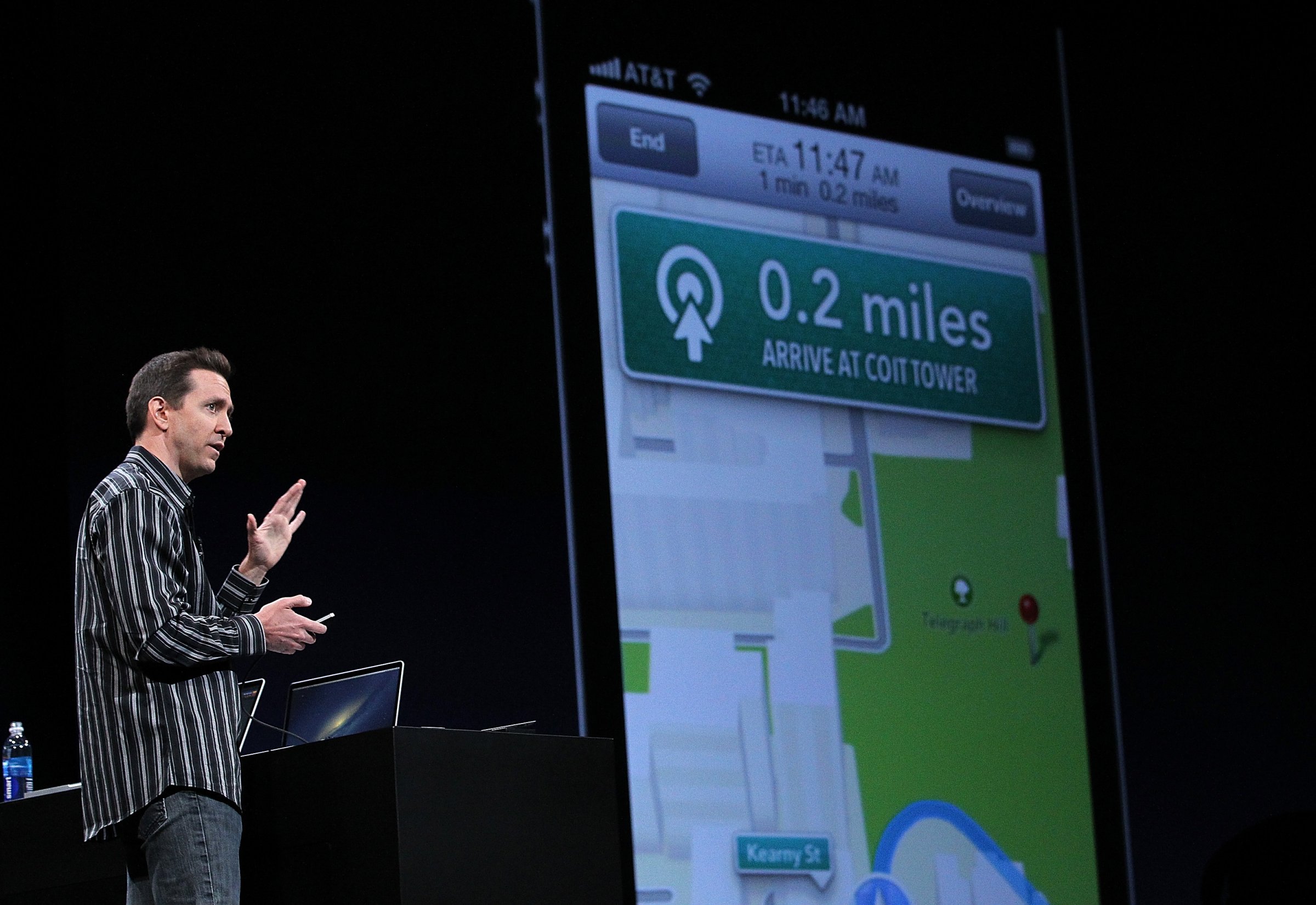
When Apple Maps replaced Google as the iPhone’s default mapping service in 2012, it was nothing short of a disaster. It struggled to locate even the most basic addresses. It sent drivers down roads that didn’t exist. It didn’t support public transit, a huge drawback for urbanites. It was such a mess that Apple CEO Tim Cook offered a rare public apology, while an Apple manager who oversaw Maps was fired.
Four years later, Apple Maps is greatly improved — enjoyable to use, even! This week, a new profile of Cook and other Apple executives in Fast Company offers fresh insight into how the Maps fiasco changed the company’s approach to software.
As it turns out, the Maps debacle led Apple to offer public betas for new iPhone software, which it hadn’t done before. The theory: People who download pre-release software will find and report bugs that smaller teams inside Apple might miss.
But the company did more than just throw numbers at the problem. Cook also forced his execs to re-examine, and change, the way they worked with development teams. Famous for being secretive, Apple opened up a bit. “We made significant changes to all of our development processes because of it,” says Cue, who now oversees Maps. “To all of us living in Cupertino, the maps for here were pretty darn good. Right? So [the problem] wasn’t obvious to us. We were never able to take it out to a large number of users to get that feedback. Now we do.”
Apple now does public beta testing of its most significant software projects, something that Jobs never liked to do. In 2014, the company asked users to test run its Yosemite upgrade to OS X. Last year, it introduced beta testing of iOS, which is the company’s most important operating system. “The reason you as a customer are going to be able to test iOS,” Cue says, “is because of Maps.”
Also of interest to Apple watchers: Cook is very intrigued by Apple’s potential to shake up the healthcare industries. We’ve already seen a bit of that with the Apple Watch, HealthKit, ResearchKit and so on, but it sounds like there’s much more in the pipeline that hasn’t been discussed publicly yet:
As we’re saying our goodbyes, Cook and I stumble into discussing health care, and he perks up again. “We’ve gotten into the health arena and we started looking at wellness, that took us to pulling a string to thinking about research, pulling that string a little further took us to some patient-care stuff, and that pulled a string that’s taking us into some other stuff,” he says. “When you look at most of the solutions, whether it’s devices, or things coming up out of Big Pharma, first and foremost, they are done to get the reimbursement [from an insurance provider]. Not thinking about what helps the patient. So if you don’t care about reimbursement, which we have the privilege of doing, that may even make the smartphone market look small.”
More Must-Reads From TIME
- The 100 Most Influential People of 2024
- The Revolution of Yulia Navalnaya
- 6 Compliments That Land Every Time
- What's the Deal With the Bitcoin Halving?
- If You're Dating Right Now , You're Brave: Column
- The AI That Could Heal a Divided Internet
- Fallout Is a Brilliant Model for the Future of Video Game Adaptations
- Want Weekly Recs on What to Watch, Read, and More? Sign Up for Worth Your Time
Contact us at letters@time.com